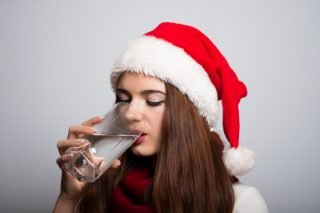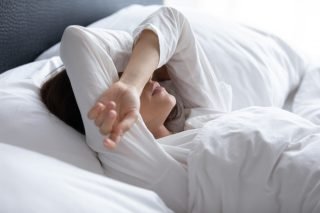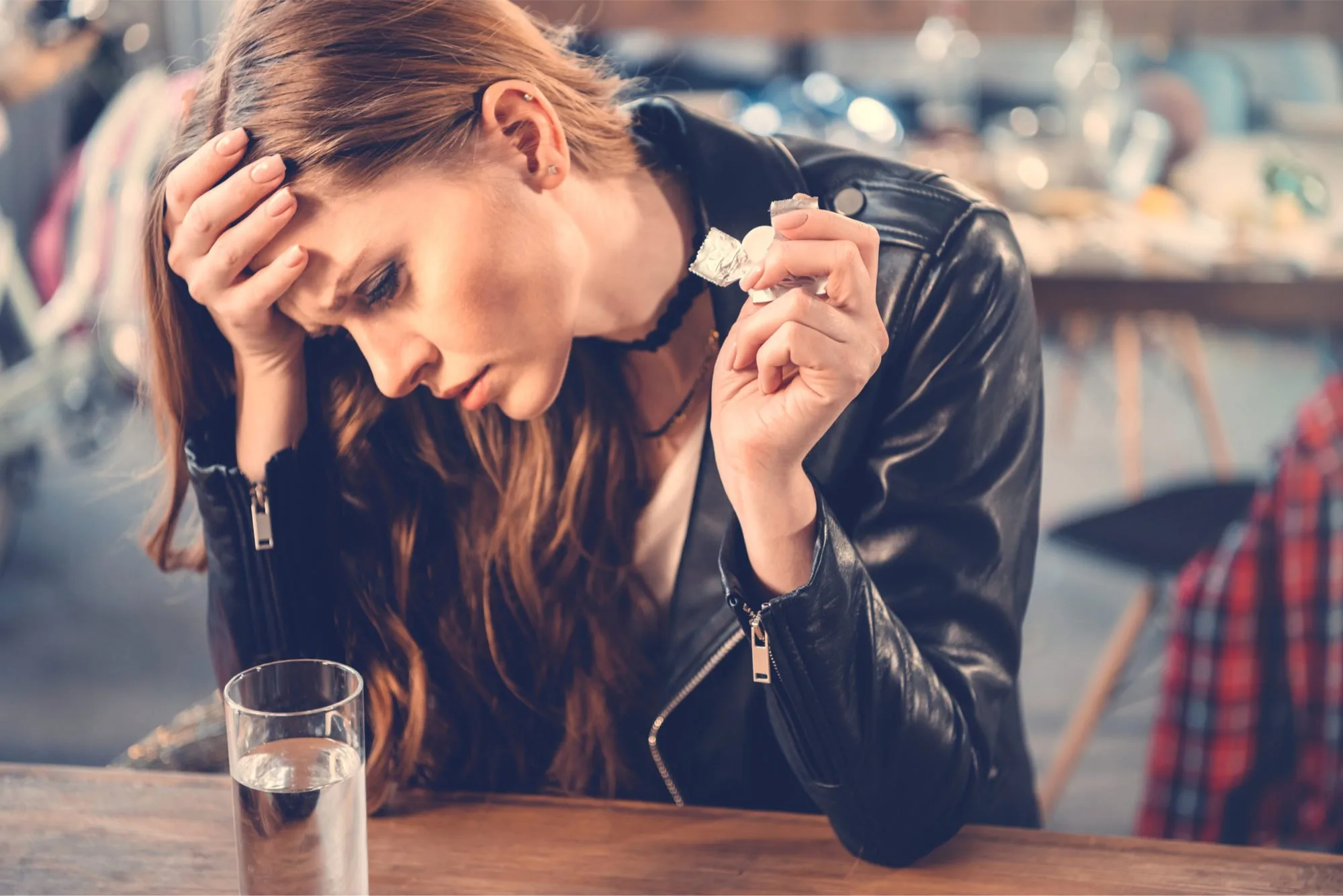We’ve all been there, particularly over the festive season. You drink a little too much wine and not enough water. It’s a recipe for a hangover. The next day, you wake up to a throbbing headache, feeling incredibly thirsty and nauseous. It’s no secret that hangovers aren’t fun but there are some things you can do to help get through them.
What is a hangover?
 Drinking alcohol can cause fatigue, nausea, ‘brain fog’, and even a low mood the day after. You experience this after drinking as a result of dehydration, electrolyte imbalances, alcohol withdrawal, low blood sugar, stomach and intestine inflammation, and sleep disturbances. It’s interesting to note that alcohol itself isn’t actually the culprit here. The real culprit is alcohol’s diuretic (dehydrating) effect. This is what is actually causing your hangover.
Drinking alcohol can cause fatigue, nausea, ‘brain fog’, and even a low mood the day after. You experience this after drinking as a result of dehydration, electrolyte imbalances, alcohol withdrawal, low blood sugar, stomach and intestine inflammation, and sleep disturbances. It’s interesting to note that alcohol itself isn’t actually the culprit here. The real culprit is alcohol’s diuretic (dehydrating) effect. This is what is actually causing your hangover.
On average, a hangover can last up to 24 hours and will go away on its own. How the symptoms progress and at what rate varies from person to person. Some people can drink more than others and experience little to no effects. Other people might experience a hangover after only a single drink. Research suggests that factors such as personality, genetic factors, health status, age, and gender can play a role in how prone you are to hangovers. Younger people are more likely to experience severe hangovers and women are more prone to them than men. Other factors such as smoking, using drugs, and staying up very late can also exacerbate symptoms.
How to stop a hangover in its tracks
Hydrate
Because alcohol acts as a diuretic, it’s vital that you rehydrate your body after a night of drinking. The diuretic effect of alcohol leads to increased urination. This means that you run the risk of dehydration. Dehydration is one of the major causes of a hangover. Ideally, in the normal course of events, water intake should be equal to water loss. Alcohol upsets this balance by dehydrating the body. How much water you need to drink in order to replenish and rehydrate the body is really dependent on how much you’ve had to drink. In order to make sure that you do get enough water, fill a bottle with water, and take regular sips.

Medvid.com/Shutterstock
Eat something
When you know you’re going to be drinking, it’s best to try and have some food. Eating before or during alcohol consumption can help your body to metabolize the alcohol more efficiently. This is because the digestion of food increases anti-diuretic hormone levels, sugar fructose, and blood flow to the liver. This can aid your body in breaking down the alcohol more quickly and efficiently.
However, if you do forget and manage to wake up with a hangover, carbs can definitely help. Foods that contain carbohydrates can aid in stabilizing blood sugar and help to settle an upset stomach. If you are feeling nauseous, it’s best to try something really plain like toast or crackers.
Replenish electrolytes
Any sodium-rich liquid can help to rebalance the electrolytes in the body. Electrolytes are great for targeting symptoms such as headaches and dizziness, which are both associated with hangovers. Essentially, electrolytes spark cell function and help the body to produce energy. Electrolyte-based beverages such as sports drinks are a good way to quickly replenish lost fluids and restore balance.
If you’re seeking a swifter recovery and efficient electrolyte replenishment, mobile IV treatment services offer tailored hangover cures. These services deliver a potent blend of electrolytes, vitamins, and fluids directly into the bloodstream, bypassing the digestive system for rapid absorption.
Take a pain killer and go back to bed

fizkes/shutterstock
For bad hangover induced headaches, it’s best to take an over the counter (OTC) anti-inflammatory. Aspirin or ibuprofen based medications are recommended rather than acetaminophen (Tylenol). This is because drugs like Tylenol can actually worsen the effect of alcohol on the liver. Hangover symptoms are also often made worse by lack of sleep. When you’re drinking, you’re likely to be later to bed than normal. This means you get less sleep so it’s ideal to either go straight back to bed and sleep or have a nap later in the day.
Take an antacid
An OTC antacid such as ‘Alka-Seltzer, Tums, or Pepto-Bismol’ can provide relief for an upset stomach. A more natural alternative to medication is a tablespoon of fresh, grated ginger in a cup of hot water. Ginger is also great for dealing with nausea.
The bottom line
There’s no ‘cure’ for hangovers. If you are planning on drinking more than usual, make sure to eat before drinking and maintain hydration. Have a glass of water between drinks in order to balance the body. Ways to manage a hangover include taking anti-inflammatories or antacids, eating a nutritious breakfast, rehydrating, and eating foods that are rich in antioxidants.
References
https://www.healthline.com/health/what-causes-a-hangover#other-reasons-for-hangovers
https://www.medicalnewstoday.com/articles/324178#over-the-counter-drugs
https://www.healthline.com/health/fitness-nutrition/electrolytes-food#food-vs-drink



![women [longevity live]](https://longevitylive.com/wp-content/uploads/2020/01/photo-of-women-walking-down-the-street-1116984-100x100.jpg)










